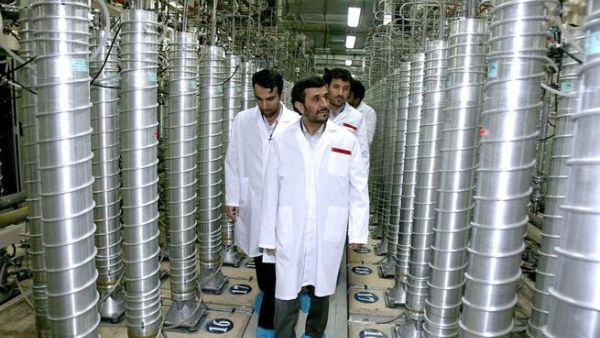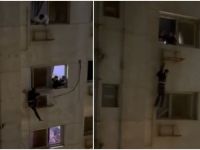The agreement Saturday in Istanbul between Iran and major powers to launch a process of negotiations on Iran's nuclear program is a small step on the long road that will restore trust between Tehran and Westerners, experts believe.
Peter Crail, an analyst for the Arms Control Association (Washington),thinks that "it is too early to say we've turned a page," but "there is an agreement that kicks off a process of negotiations to address highly technical issues, and (that) is what we could expect, however, there is still" much to do. "
Iran and the group "5 +1" (the five members of the UN Security plus Germany) have decided to meet again on May 23 in Baghdad to set a framework for negotiations on Iran's nuclear program. Both sides described the discussions in Istanbul as "positive."
The Istanbul agreement "can not be called a breakthrough, but a possible breakthrough that may happen at the next meeting," said Bruno Tertrais of the Foundation for Strategic Research (Paris). "We can talk about breakthrough when Iran accepts the necessary inspections (of its nuclear site). Until then, these are just discussions. "
"If Iran wants to be free of international pressure, it will have to agree to make "concrete steps", said Saturday Catherine Ashton, the chief diplomat of the European Union, leading the "5 +1." This would include a decrease in uranium enrichment to 20%.
The enrichment carried out by Iran worries the international community, especially Israel, which suspects Iran of wanting to make atomic weapons, a charge rejected by Tehran. Ignoring these suspicions, Iran continued its nuclear program, starting uranium enrichment to the level of 20% in the Fordo site (150 km south of Tehran), a facility constructed under a mountain.
In Baghdad, the West could also ask Iran to agree to sign the Additional Protocol to the Non-Proliferation Treaty (NPT) allowing extensive inspections. The IAEA (International Atomic Energy Agency) has repeated in its last report that, the lack of a "sufficient cooperation" from Iran.
On his part, Israeli Prime Minister Benjamin Netanyahu Sunday expressed his irritation about the fact that the Iranian nuclear negotiations will not resume until May 23. "My first impression is that we have given a gift to Iran, which will have five weeks to continue its enrichment activities without restriction," he said, after a meeting with U.S. Senator Joseph Lieberman .
"I think Iran should take immediate steps: first stop all enrichment and remove all materials enriched and dismantle the nuclear facility in Qom. I remain convinced that the first terrorist country in the world should not have the opportunity to develop atomic bombs," he added.
mily:A�\ '<��� �� ;
An unsolicited proposal from Abacus Consolidated Resources and Holdings, Inc. to build the pipeline for $1.2 billion was denied by the PNOC in September last year.
It was originally proposed as part of former president Gloria Macapagal-Arroyo's long-term natural gas plans.
A second pipeline, called BatMan 2 which will run from Bataan to Manila, has been shelved. –
amily: o�aa��� �� rif, helvetica, arial; padding-top: 0px; padding-right: 0px; padding-bottom: 0px; padding-left: 0px; margin-top: 0px; margin-right: 0px; margin-bottom: 0px; margin-left: 0px; ">
Local firms like First Gen Corp. and Abacus Consolidated Resources, Inc. also reportedly expressed interest.
"These are the same firms that earlier approached us [before it was decided that the pipeline would be a state-led effort], Mr. Layug said.
Mr. Layug said the interested investors will be responsible not only for building the receiving terminal but also look for off-takers of the imported liquefied natural gas (LNG) and look for suppliers.
"There haven't been applications yet for LNG suppliers because we don't have the facility yet. That's why we're starting the pipeline and once we have it there will be LNG flowing," said Mr. Layug.
The 105-kilometer pipeline is expected to be completed in three years. Bidding for its engineering and procurement contract is set to start in the first quarter of 2013.
Previously, the government was deciding whether to building the pipeline on its own or have it rendered under a public-private partnership program.
The Energy department originally planned to build the Batangas-Manila (BatMan) pipeline with a LNG terminal and a 600-megawatt power plant as an anchor load which will draw from the Malampaya natural gas project.
An unsolicited proposal from Abacus Consolidated Resources and Holdings, Inc. to build the pipeline for $1.2 billion was denied by the PNOC in September last year.
It was originally proposed as part of former president Gloria Macapagal-Arroyo's long-term natural gas plans.
A second pipeline, called BatMan 2 which will run from Bataan to Manila, has been shelved. --







